- Home
- slideshows
- miscellaneous
- 15 things I learned about hotels and Airbnbs after traveling the world for a year
15 things I learned about hotels and Airbnbs after traveling the world for a year
1. It's not just you: The community and the listings on Airbnb are changing, for better or worse.

2. If you want to know how clean a hotel room is, check the electric kettle.
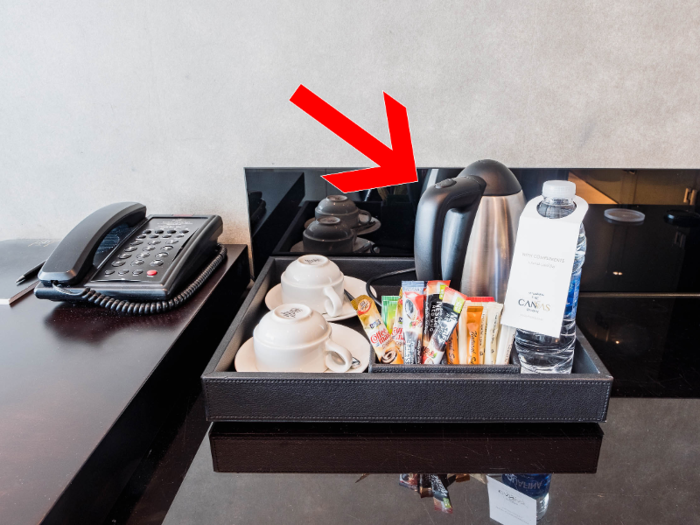
I am constantly staying in hotels that run the range from ultra-budget to mid-tier to luxury. Depending on the country and the hotel company, those categories could mean very different things in terms of amenities, quality, and cleanliness.
Every time I enter a hotel room or an Airbnb, I check the electric kettle or coffee maker — a standard item in nearly every hotel room — to see how clean it is. Poorly maintained or sloppily cleaned hotels will often have dirty, rusted, or outright moldy electric kettles.
3. When booking hotels, guesthouses, or apartments, check prices across Airbnb, Booking, and Expedia. They usually have the same listings at different prices.
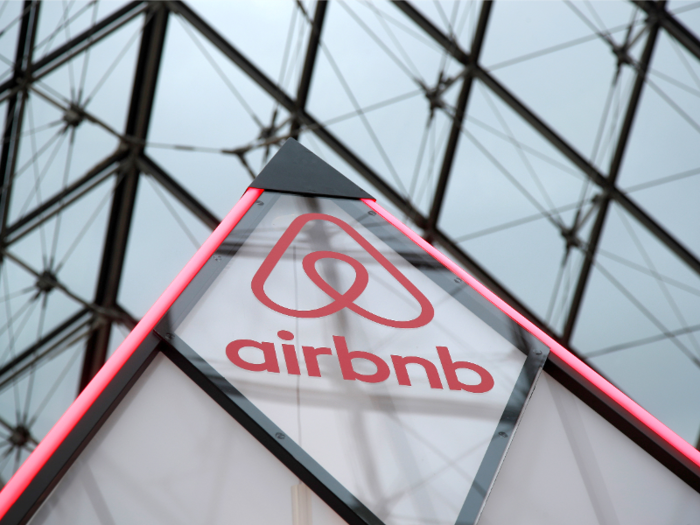
Home-rental service Airbnb is now directly competing with travel booking sites like Booking.com and Expedia, as all of the sites have both traditional hotel listings and non-traditional apartment and home listings on their platforms.
What I've observed is that more and more rental listings can be found on multiple sites, often with wildly varied pricing due to different fee structures and pricing algorithms.
Read more: Airbnb is in a war with Booking.com, and taking advantage of that fact can save you a ton of money
Save yourself some money on your next vacation by cross-referencing listings across multiple sites. I often found discrepancies of $100 or more per night by checking listings between Airbnb, Booking.com, Expedia, and others.
4. If all you care about is staying in a fancy hotel for a good price, Dubai is a pretty good option.
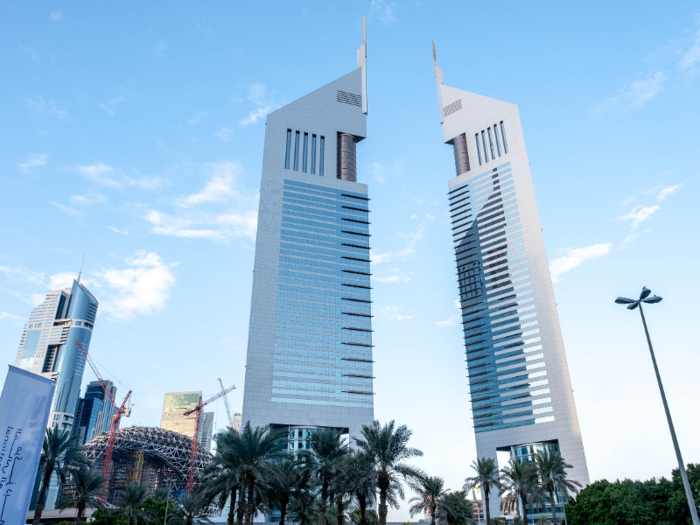
Dubai has a whopping 703 hotels with 111,864 rooms, the vast majority of which are in four- and five-star hotels.
Many experts and industry researchers say the city's hotel industry is suffering from oversupply, which is pushing down revenue and room rates for even top-of-the-line hotels.
On a recent trip to the city, I found that I could get incredible deals on luxury hotels that would cost a fortune in the US and Europe.
Over the course of a week visiting the city, I stayed almost exclusively at four- and five-star hotels and never paid more than $180 a night.
5. If you are going to splurge for a fancy hotel, it's worth double-checking that it has a spa.
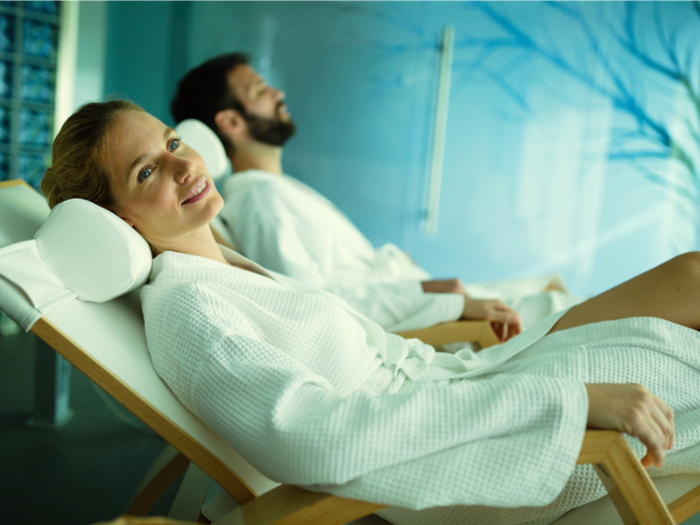
The longer I travel, the more I keep an eye out for one particular amenity when booking a hotel: a spa, or, at the very least, a steam room and sauna.
While budget hotels aren't likely to have such an amenity, if you plan on booking a high-end hotel, with a little forethought and research, you can find a hotel that includes an extensive spa replete with sauna, heated pool, and a variety of hot and cold baths and steam rooms. And, if such a spa is unavailable, you can absolutely find a hotel with just a sauna or steam room.
Many high-end hotels like the Mandarin Oriental and The Peninsula, which have locations all over the world, offer hotel guests access to their luxurious spa facilities during guests' stay. Other hotels, like Hotel Vitale in San Francisco, will give guests access if they book a treatment or massage. Some, like St. Regis, whose hotels include facilities by Remède Spa (ranked No. 1 by Travel + Leisure) will allow hotel guests to pay for a day pass. If there are any questions, make sure to ask before booking the room.
6. To keep the air in your room from getting too dry, wet a towel and hang it by the heater.
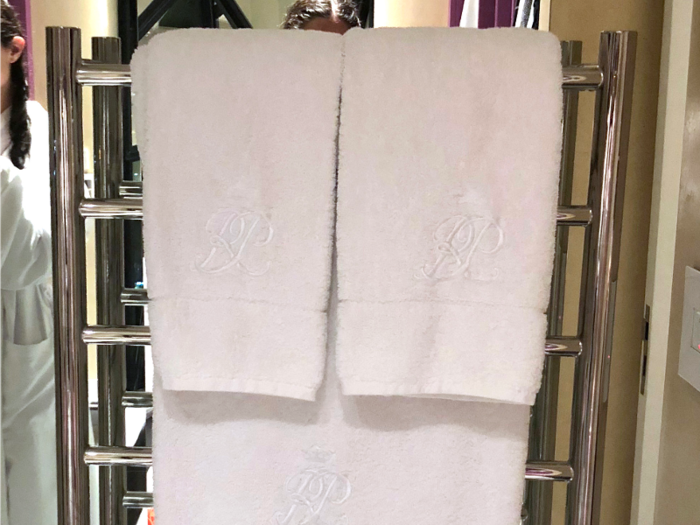
Hotels, Airbnbs, apartments, and guesthouses all have different heating systems. Sometimes, you get a room with a radiator. Sometimes, you get a room with some weirdo heating mechanism you can't even control.
It's no secret that dry air can lead to bad sleep, drying out your sinuses and leaving you waking up in the middle of the night.
To prevent that, if I find myself in a dry room, I'll wet a towel and hang it over the room's heater so that the moisture evaporates into the room. Boom: a homemade humidifier.
7. Carry a doorstop — and use it in any situation that makes you feel unsafe.
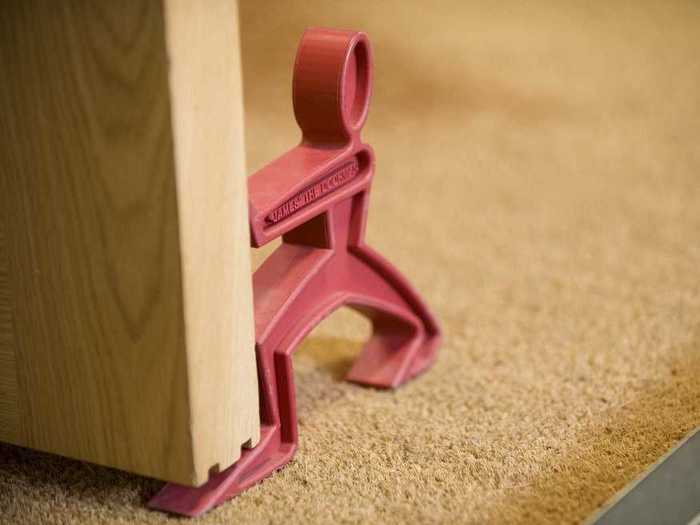
Prior to my last trip, Business Insider asked me to complete a grueling three-day training led by Global Journalist Security, an organization founded in 2011 to help people going to dangerous places acquire what it calls the "physical, digital, and emotional aspects of self-protection."
It might have been overkill, but I was heading to Nigeria, Egypt, and Kenya, which all have issues with terrorists and crime. The training course left me looking over my shoulder for three months, which was probably the point.
One of the instructors, a former Australian Armed Forces elite commando who has been in the world's most dangerous places, hammered home that hotels are not as safe as you might think. It's no secret that's where foreigners and wealthy people are staying, and sometimes, it's the hotel workers themselves who are looking to cause trouble.
He said he always carries a doorstop in his suitcase, puts it in front of his door, and never answers the door if there's a knock in the middle of the night. I now do the same.
8. Carry photocopies of your passport.
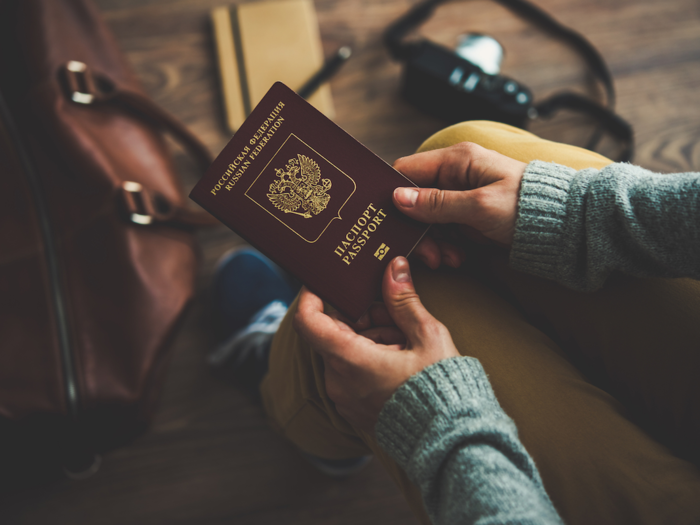
This is another tip that came courtesy of Global Journalist Security.
Most places around the world require you to show your passport when you check into a hotel. They take a photocopy of your passport and either put it in their files or — if you are in China, Cuba, or some other non-democratic state — send it off to the government.
If you are traveling to less-than-safe places, save yourself the split-second panic attack of wondering whether the hotel worker is going to give you your passport back or try to hold it hostage, and carry photocopies of your passport. When they ask to see your passport, hand them that instead.
9. Don't trust the hotel safe: Get a lockable suitcase.
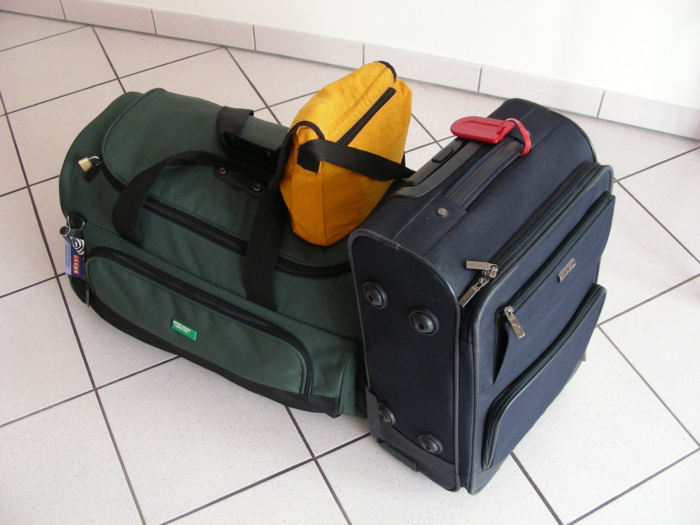
If you are carrying important valuables like an expensive camera, lots of cash, fancy jewelry, or anything else you can't stand to lose, make sure you have a lockable suitcase. When you leave your hotel room, put any valuables back in the suitcase and lock it up.
You can use the safe in the hotel room, but who do you think can unlock that safe in the event that you forgot your passcode? Any hotel staff worker. It's unlikely, but an employee could open it and swipe away your passport and other valuables.
This strategy certainly isn't foolproof, but the idea is to make yourself less of an easy target.
Bonus: You won't end up like I did two years ago, when I left my passport in a Vienna hotel room safe and only realized it once I was on the train to Salzburg.
10. Check out times vary from country to country.
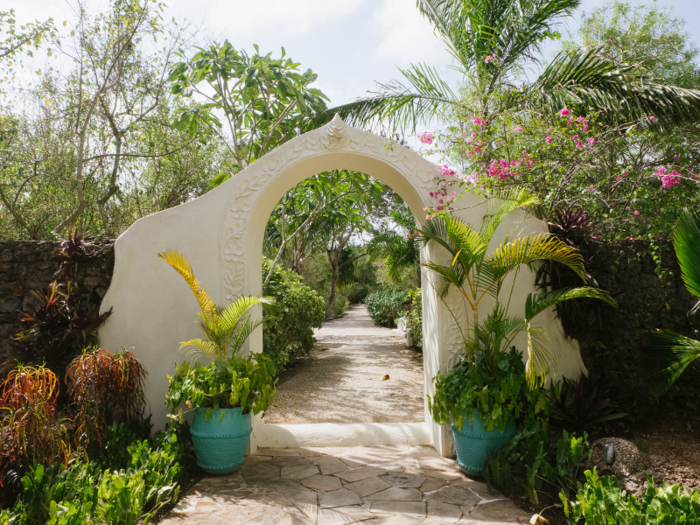
One might think that the standard hotel checkout time everywhere is noon. One would be wrong. It varies by country and culture.
In Tanzania, a standard hotel checkout is 10 a.m., not noon. As someone who likes to take his time leaving a hotel, I found this hard to get used to when I visited the country in February.
I stayed in multiple hotels and lodges in northern Tanzania — near or in the Serengeti National Park — and on the island of Zanzibar. Every hotel had a strict 10 a.m. checkout. This led to lots of early-morning scrambling to pack my bags.
The lesson: Always ask what time checkout is in a new country.
11. Don't be afraid to ask for late checkout.
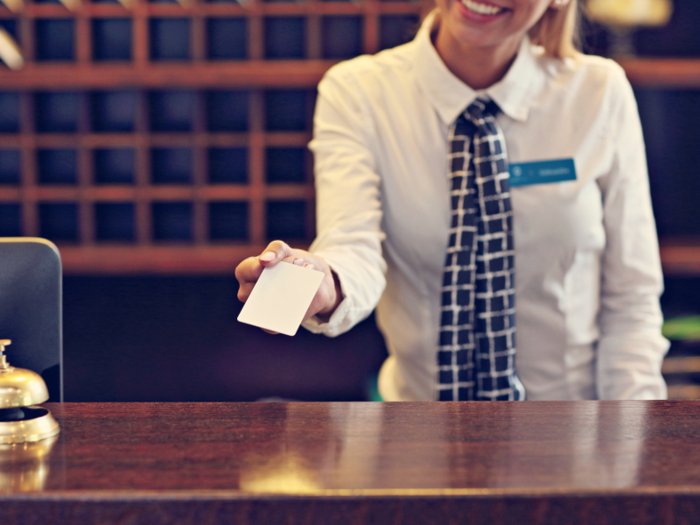
By the same token, there's nothing wrong with asking for late checkout.
In my experience, most hotels have plenty of rooms open and concierges have no trouble pushing checkout times by an hour or two to accommodate.
I've gotten hotels to push my checkout time as late as 2 p.m. to accommodate a later flight, just by asking. Don't be shy.
12. The best lodging option — Airbnb, hotel, guesthouse, or some other option — will be different in each destination.
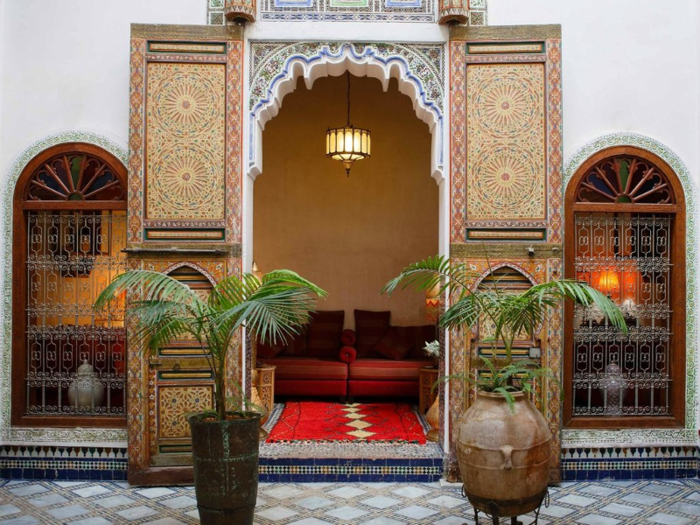
The best type of lodging is going to vary greatly depending on where you are.
In Morocco, the best way to see the country is by staying in riads, traditional Moroccan homes that have been converted into guesthouses. They are usually gorgeous, family-owned properties.
Read more: After a month in Morocco, I can tell you the last place you want to stay is in a hotel or Airbnb
In Cuba, traditional hotels are mostly state-owned and overpriced, while casa particulares, or homestays, cost $20-40, are very nice, and give money directly to regular Cubans.
Meanwhile, Dubai has such an oversupply of four- and five-star hotels that you can book fancy hotels for bargain prices.
I could go on, but long story short: Do the research beforehand if you want to get solid prices and a good experience out of your stay.
13. The thing that sets elite hotels apart isn't the "pillow menus" or gold-covered walls: It's the service.
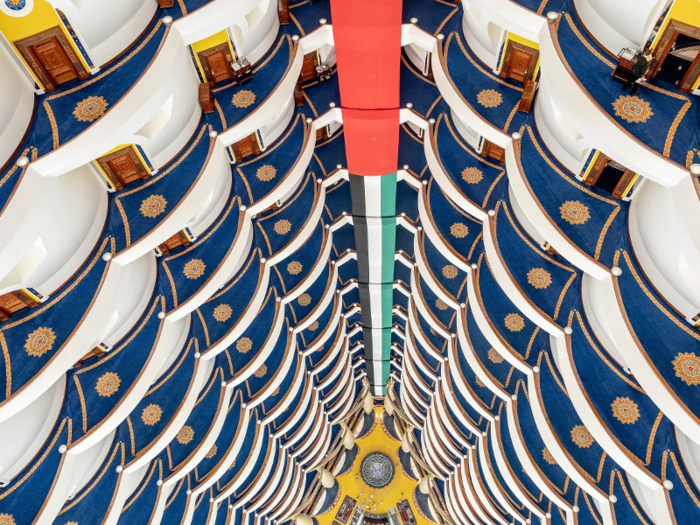
When someone tells you a place is "the most luxurious hotel in the world," the natural response might be to ask incredulously, "What makes it so luxurious?"
That's how I felt before visiting the Burj Al Arab in Dubai, which was named the Best Hotel in the World by The Telegraph's ULTRA Awards this year and has often been called "the most luxurious hotel in the world" by travel writers and critics.
After spending a night at the Burj this past November, I think I have the answer. While the $1 billion hotel is full of extravagances, like a Rolls-Royce chauffeur, a 14-piece set of Hermès toiletries, and interiors decorated with nearly 20,000 square feet of 24-karat gold, it's the service that puts it over the top.
The Burj Al Arab has a staff-to-suite ratio of 6:1. That means there are 1,300 employees for the hotel's 202 suites, including everything from chefs and mixologists to florists, locker room attendants, and hosts.
The ratio leads to a level of attention that I imagine most people have never experienced. Someone is always available to take care of your every whim or answer every question. Look around in the hotel with a puzzled look for more than a few seconds and someone comes over to ask what you need.
The service reaches another level when it comes to your actual suite. Every floor has a team of personal butlers who are there waiting to attend to your every desire. The person on duty will stand up as you approach and greet you by name.
14. There's an easy way to steam out wrinkles in your dress shirts and blazers, even if you don't have access to a dry cleaner.
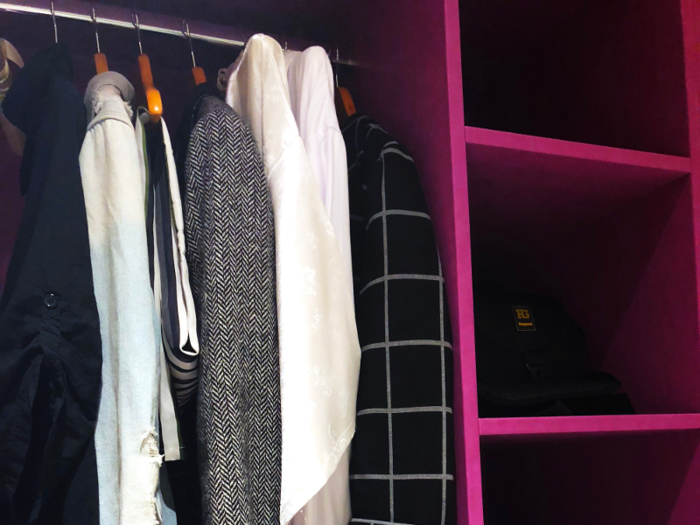
Clothes get wrinkly in suitcases. No matter how many convoluted folding methods or specialty bags you buy, it's going to happen.
The best way I've found to avoid this inconvenience is to take the hangers from the hotel or Airbnb closet, hang the shirts that need to be unwrinkled on the hangers, and then put them in the bathroom.
Then, when I take a shower, they get steamed. It's a good way to get around needing a dry cleaner when you're on the road.
15. The most important part of any hotel is its location.
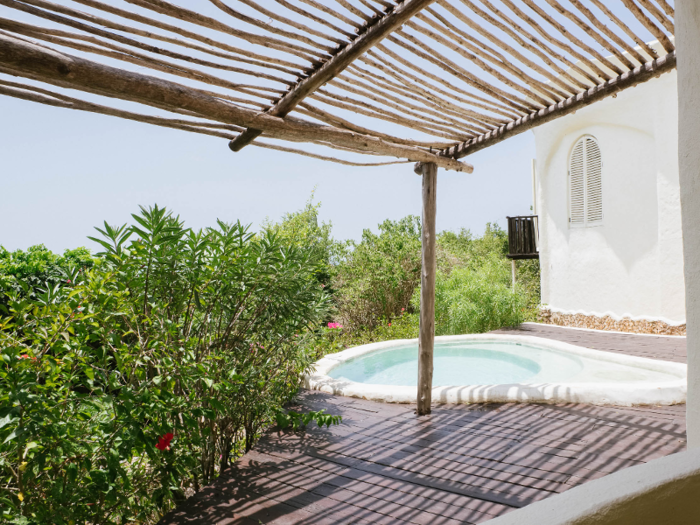
I've stayed in a lot of luxurious places as I've traveled over the past year, including the Marina Bay Sands, the Burj Al Arab, and Nobu Hotel Ibiza.
On a recent trip to Zanzibar, I was surprised to find that I liked a boutique hotel called Elewana Kilindi Zanzibar better than all of those.
It was designed as a getaway for a member of the 1980s pop group ABBA, but has since been turned into a luxurious, eco-friendly beach getaway.
The reason? Kilindi has an incredible location. It is situated on 50 acres of gorgeous tropical gardens and possibly the most beautiful beach I've ever stepped foot on.
Popular Right Now
Popular Keywords
Advertisement